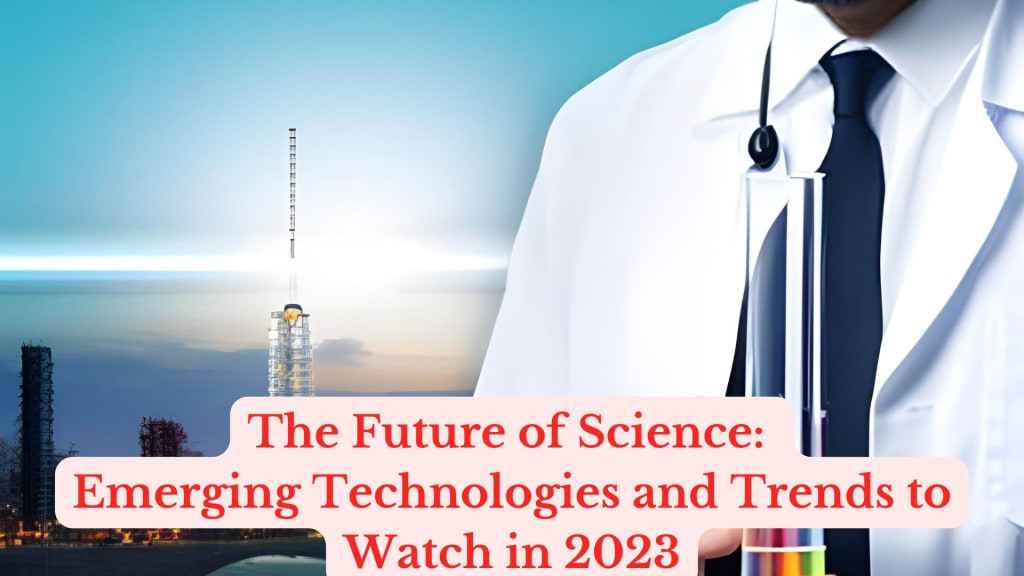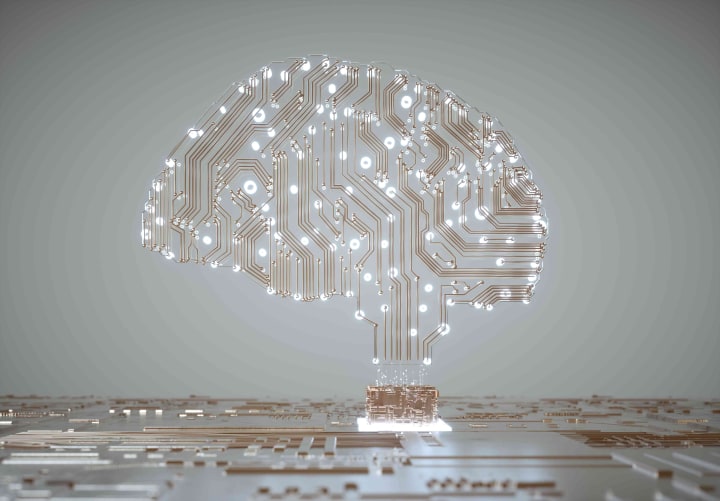The Future of Science: Emerging Technologies and Trends to Watch in 2023
From Gene Editing to Quantum Computing, Here's What's on the Horizon

Introduction:
Science is constantly evolving, with new discoveries and technologies emerging every year. As we enter 2023, it's important to be aware of the latest trends and developments in science, and the potential impact they could have on our lives. In this guide, we'll cover the emerging technologies and trends to watch in 2023.
Chapter 1: Gene Editing
Gene editing is a rapidly evolving field that has the potential to revolutionize medicine and agriculture. In 2023, we can expect to see continued advancements in gene editing technologies, such as CRISPR-Cas9, which allows scientists to target and modify specific genes. We may also see the emergence of new gene editing techniques, such as base editing and prime editing, which allow for more precise modifications to DNA.
Gene editing has the potential to cure genetic diseases, create new crop varieties, and even extend human lifespan. However, it also raises ethical concerns, such as the potential for unintended consequences and the possibility of creating "designer babies." As gene editing technology continues to advance, it's important to have a robust ethical framework in place to guide its use.

Chapter 2: Quantum Computing
Quantum computing is a rapidly advancing field that has the potential to solve complex problems that are beyond the capabilities of classical computers. In 2023, we can expect to see continued advancements in quantum computing technologies, such as superconducting qubits and trapped ions. We may also see the emergence of new quantum computing architectures, such as topological qubits and photonic qubits.
Quantum computing has the potential to revolutionize fields such as cryptography, drug discovery, and materials science. However, it also poses new security risks, as quantum computers could potentially break current encryption algorithms. As quantum computing technology continues to advance, it's important to develop new encryption methods that are resistant to quantum attacks.

Chapter 3: Artificial Intelligence
Artificial intelligence (AI) is a rapidly developing field that has the potential to transform many industries, from healthcare to finance. In 2023, we can expect to see continued advancements in AI technologies, such as deep learning and natural language processing. We may also see the emergence of new AI applications, such as autonomous vehicles and personalized medicine.
AI has the potential to improve efficiency and accuracy in many industries, but it also raises concerns about job displacement and bias. As AI technology continues to advance, it's important to develop new policies and regulations to ensure that it is used ethically and responsibly.

Chapter 4: Renewable Energy
Renewable energy is an increasingly important field as the world seeks to reduce its carbon footprint and combat climate change. In 2023, we can expect to see continued advancements in renewable energy technologies, such as solar and wind power. We may also see the emergence of new renewable energy sources, such as geothermal and tidal power.
Renewable energy has the potential to reduce our dependence on fossil fuels and mitigate the effects of climate change. However, it also faces challenges, such as intermittency and storage. As renewable energy technology continues to advance, it's important to develop new storage solutions and to integrate renewable energy into existing power grids.

Chapter 5: Space Exploration
Space exploration is a field that has captured the imagination of scientists and the public alike for decades. In 2023, we can expect to see continued advancements in space exploration technologies, such as reusable rockets and advanced space suits. We may also see the emergence of new space exploration missions, such as manned missions to Mars.
Space exploration has the potential to expand our understanding of the universe and to pave the way for new technologies and discoveries. However, it also poses risks, such as radiation exposure and the potential for accidents. As space exploration technology continues to advance, it's important to ensure that safety measures are in place and that the benefits outweigh the risks.

Conclusion:
In conclusion, science is a constantly evolving field, with new technologies and discoveries emerging every year. By staying up-to-date on the latest trends and developments, we can better understand the potential impact these technologies could have on our lives. From gene editing to quantum computing, the future of science is full of exciting possibilities and challenges. With the right mindset and tools, we can continue to push the boundaries of what is possible and make progress towards a better future.
About the Creator
GelStories
I am Melfred and I am passionate, and I like reading and writing. In this page I am going to write many stories covering many interesting subjects such as lifestyle, business, investments, school, science, cuisine, culture, etc. Welcome!






Comments
There are no comments for this story
Be the first to respond and start the conversation.